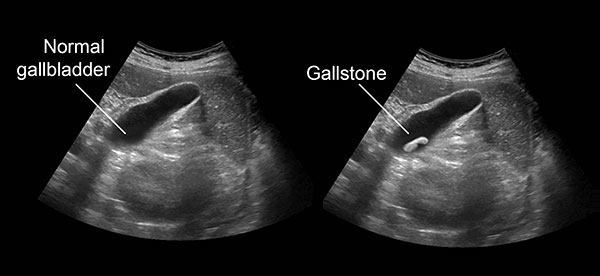Gallstones are a common condition that affects many people every year. When gallstones are characterized by pain and complications, doctors will often recommend ERCP for both diagnosis and treatment. Before agreeing on this course of action, there are a few things that you should know.
Less Invasive Diagnostic Procedures Are Available
CT scans, ultrasounds, and MRCP can be used to diagnose gallstones and other conditions affecting the bile and pancreatic ducts. While these procedures cannot be used to treat gallstones, they are less invasive and don’t carry the same risks as ERCP. If gallstones are only suspected and have not been definitively diagnosed, it may be possible to request one of these alternative procedures.
Treatment Is Usually Not Necessary If Symptoms Are Absent
If gallstones don’t cause symptoms, they will generally resolve on their own or otherwise not require treatment. About two of every three people that have gallstones will experience no symptoms. If gallstones have been identified but no symptoms have presented, it is important to be aware of the symptoms that may present if there are complications with passing the gallstones.
If there are no gallstone symptoms, a doctor shouldn’t recommend treatment unless there are other factors that necessitate it. If a doctor still recommends ERCP, you may wish to seek a second opinion.
ERCP Complications Can Be Debilitating
ERCP complications can cause bleeding, infections, organ perforation, pancreatitis, and even death. The risk of developing these complications increases greatly if ERCP malpractice occurs during the procedure. Malpractice may include failure to take proper precautions or going into the procedure without adequate training.
Certain Factors May Increase ERCP Risks
If you are pregnant, have a lung condition, have a history of heart problems, have allergies, or have diabetes, ERCP risks may increase. If you do decide to go through with an ERCP for gallstones, it is important to let the doctor know if any of these factors are present.
Medication May Be Helpful
Medication called ursodeoxycholic acid can work to dissolve small gallstones or can even be used as a preventative measure for people that are more prone to developing gallstones. Unfortunately, the medication is not always successful and can take years to work when it is successful. For this reason, it is not typically used to treat large or painful gallstones, unless there are reasons that surgery must be avoided.
Gallbladder Removal Surgery May Be More Effective
If you have developed gallstones in the past or if there is a high risk of developing complications such as gallbladder cancer or pancreatitis, it may be more effective to remove the gallbladder than remove the stones using ERCP. This can often be done using keyhole surgery, in which small cuts are made in the abdomen and the gallbladder is removed using instruments and a small scope inserted through the cuts.
If you have gallstones and your doctor has recommended ERCP, consider your other options and the risks of the procedure before agreeing.

